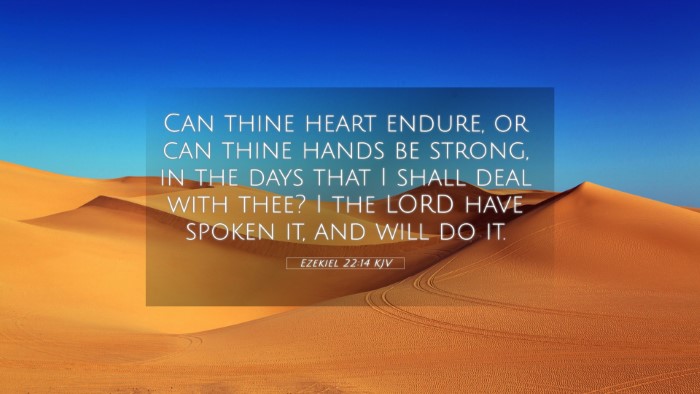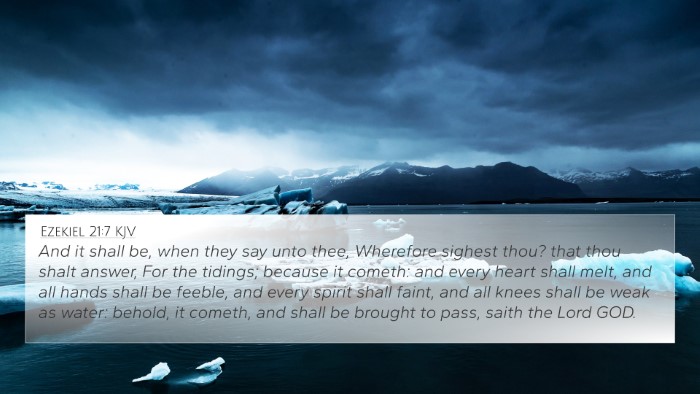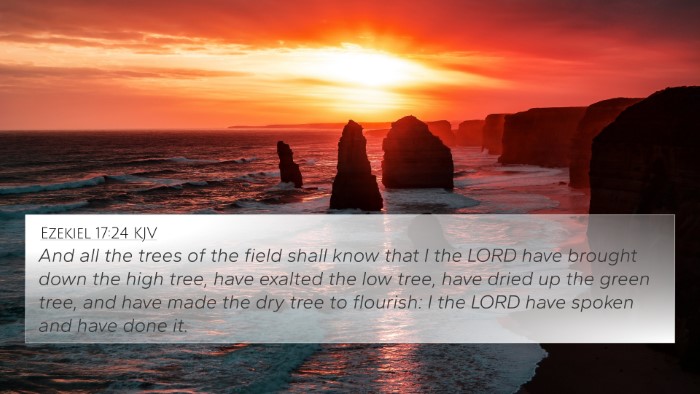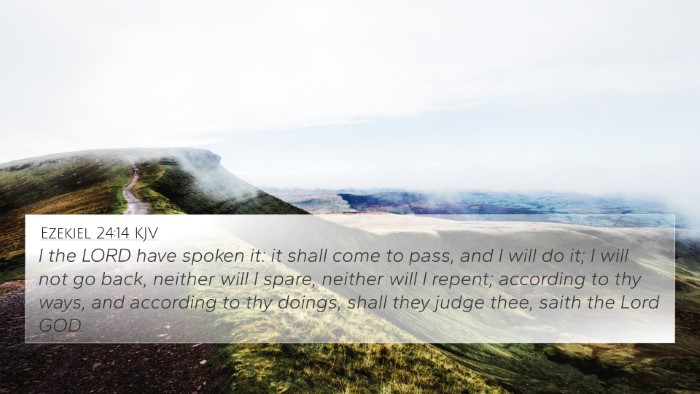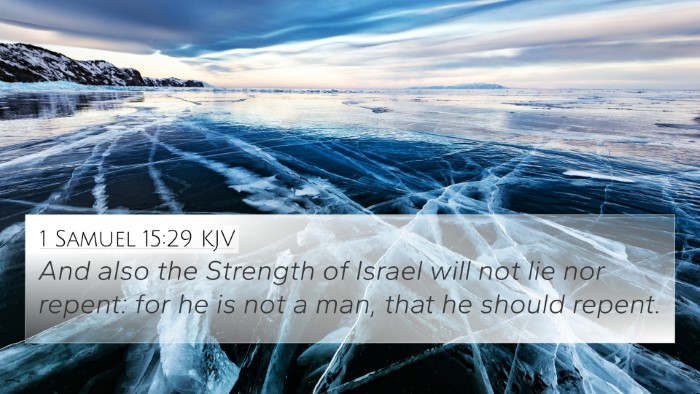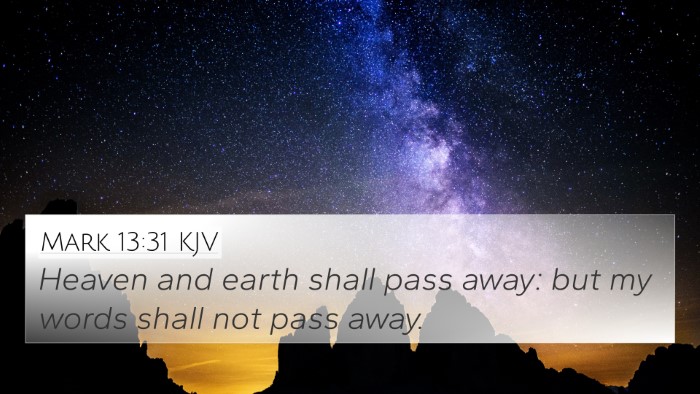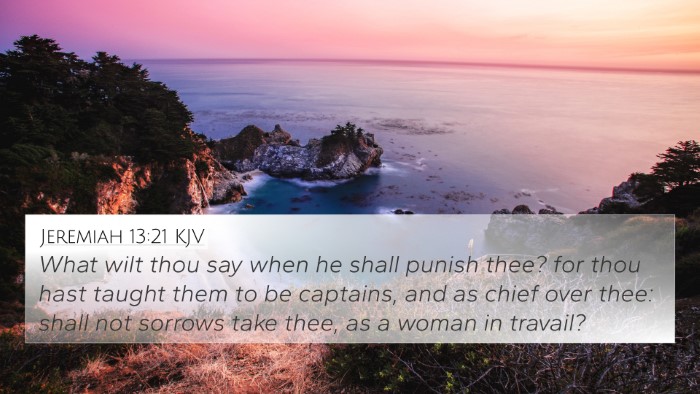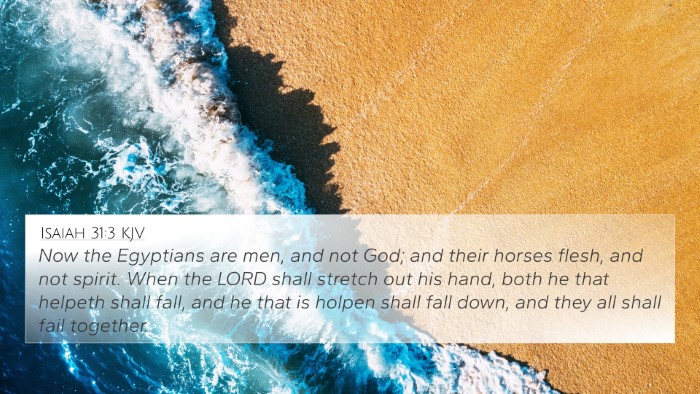Ezekiel 22:14 - Summary and Interpretation
Ezekiel 22:14 states, "Can thy heart endure, or can thy hands be strong, in the days that I shall deal with thee? I the Lord have spoken it, and I will do it." This verse serves as a profound reminder of God's sovereignty and judgment, particularly in the context of a nation facing moral decay and impending punishment for its transgressions.
Meaning and Insights From Commentaries
Commentaries from renowned theologians such as Matthew Henry, Albert Barnes, and Adam Clarke provide a cohesive understanding of the verse's implications.
-
Matthew Henry Commentary
Matthew Henry reflects on the duality of God's promise both to punish and to restore. He emphasizes that the verse challenges Israel, compelling them to introspect whether their hearts and hands, symbolic of their will and actions, can withstand the trials ahead as a consequence of their sins.
-
Albert Barnes' Notes
Albert Barnes highlights the rhetorical nature of God's question in the verse. It underscores the helplessness of man before divine judgment. He asserts that God's words are certain, signifying that His threats are as real as His promises, urging listeners to respond with humility and repentance.
-
Adam Clarke's Commentary
Adam Clarke elaborates on the severity of God’s impending actions against Jerusalem. He notes that God's power is absolute, and His dealings with humanity are inevitable, propelling a call for repentance and a reevaluation of faith and conduct before divine intervention.
Contextual Analysis
This verse is set against the broader narrative of Ezekiel, wherein God addresses the pervasive sinfulness and idolatry of Israel. The tormented state of the people and naysayers who doubted God's promises are central themes identified through the cross-referencing of various scriptures.
Cross-References for Ezekiel 22:14
Understanding verse 22:14 can be enriched by considering these biblical texts:
- Ezekiel 18:30: Calls for repentance - aligning the need for personal responsibility in returning to God.
- Isaiah 1:18: Offers a plea for reason and reconciliation through repentance.
- Lamentations 3:38: Reminds that both good and evil come from the Lord, emphasizing His supreme authority.
- Jeremiah 17:9-10: Discusses the deceitfulness of the heart, highlighting human inadequacy.
- Hebrews 12:25: Warns not to refuse God when He speaks, reinforcing the urgency of heeding divine warnings.
- Psalm 73:26: Reflects the strength of God as a stabilizing force in the face of turmoil.
- Romans 2:6-8: Speaks of God's judgment based on deeds, correlating with the thematic elements of accountability in Ezekiel.
- Micah 6:8: Mandates justice, mercy, and humility as responses to God's guidance.
- Matthew 24:13: Informs about the endurance of faith under trials, parallel to heart strength discussed in Ezekiel.
- 2 Corinthians 5:10: Reinforces the idea of accountability before God’s judgment seat.
Practical Applications
For contemporary readers, Ezekiel 22:14 serves as both a warning and encouragement. It emphasizes the importance of:
- Self-Examination: To evaluate one’s spiritual condition in relation to God’s standards.
- Strengthening Faith: Encouraging reliance on God’s strength rather than individual resolve.
- Embracing Humility: Recognizing human frailty in contrast to divine omnipotence.
Connecting Biblical Themes
The overarching messages in Ezekiel 22:14 resonate throughout the biblical narrative, serving as an inter-Biblical dialogue on themes of judgment, grace, and the need for repentance. As such, it supports the exploration of scriptural cross-referencing methodologies for deeper study and understanding.
Tools for Bible Cross-Referencing
Utilizing tools for Bible cross-referencing can significantly enhance comprehension of verses like Ezekiel 22:14:
- Bible Concordance: A list of words and phrases in the Bible with references for study.
- Bible Cross-Reference Guide: Resources to identify related verses across the Bible.
- Cross-Reference Bible Study Materials: Comprehensive studies that link scriptures thematically.
- Bible Reference Resources: Tools that assist in connecting concepts between texts.
Conclusion
Ezekiel 22:14 challenges believers and scholars alike to consider their strength and resolve in light of divine judgment. By engaging in comparative Bible verse analysis and utilizing cross-referencing techniques, individuals can uncover a deeper understanding of God's character and His expectations for humanity.

